Last updated: April 15, 2023
Any links on this page that lead to products on Amazon are affiliate links and I earn a commission if you make a purchase. Thanks in advance – I really appreciate it!
My niece’s horse gets anxious whenever she travels in a trailer. By the time we get to a show, her horse is washed out from the stress, definitely not in the best condition to compete. She asked me if I knew anything she could use to calm her horse.
Recognizing stress indicators, letting your horse out regularly, or even talking to them soothingly are ways to help calm an anxious horse. Some horses are naturally nervous, while others become nervous from triggers. Sometimes, introducing them to their fears or using calming supplements may work best.
Horses are prey animals, so they can become easily spooked or anxious. If you’re new to horses or even just horseback riding, it’s important to know how to calm an anxious horse. Check out these tips from the pros on how to reassure your horse and keep things calm during your ride.
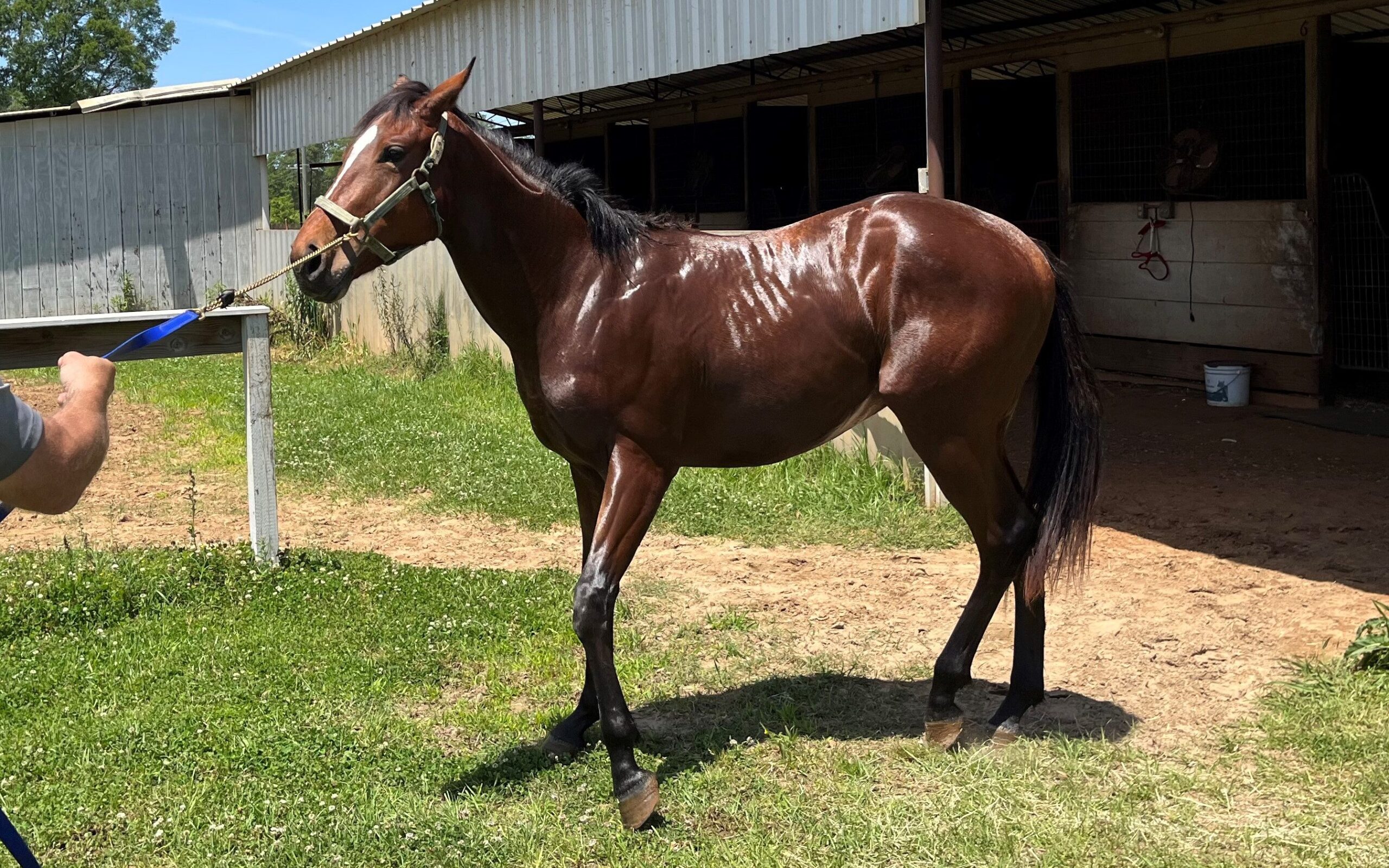
Symptoms of Anxiety in Horses
Knowing what to do when your horse is anxious or stressed out can prevent injury and long-term damage, so it’s crucial to recognize the symptoms. Horse anxiety is characterized by a horse’s fear or apprehension in response to certain stimuli.
Symptoms of horse anxiety include sweating, increased heart rate, and respiration. In severe cases, horse anxiety can lead to panic attacks and destructive behaviors such as cribbing, pacing, or weaving.
I’ve seen many of these symptoms in horses we’ve owned; for instance, we had a young racehorse that worked well in the mornings and was always comfortable. However, when she got in front of a crowd on race day, she would wash out (sweat profusely) and not compete.
Another horse in our barn was an amazing athlete and won some nice races. However, he kicked his stall walls when he became nervous. He eventually kicked the wall so hard that he severely injured his fetlock joint and never raced again.
Like humans, signs of anxiety in horses can manifest in different ways. No two horses are alike, but their movements and actions can be recognized as signs of anxiety.
While there is no cure for horse anxiety, several management strategies can help reduce its severity. These include desensitization training, removing the stimuli, bonding, and establishing a consistent routine.
The following chart lists many common signs of anxiety in horses.
| Pacing in the stall | Kicking | Excessive sweating |
| Grinding teeth | Loss of appetite | Flared Nostrils |
| Spooking | Shaking head | Rolling eyes |
| Weaving | Cribbing | Trembling |
Implement changes to help calm anxious horses.
While horse anxiety can be caused by different factors, the most common trigger is a change in routine or environment. If you notice that your horse is showing signs that they are stressed out and anxious all the time, it probably is time to make some changes.
From ensuring your horse’s tack is on correctly to turning your horse out regularly and everything in between, there are many ways to address this issue and help your horse out.
Turn your horse out regularly.
Horses must get out and about daily, or their stress levels will rise. Staying cooped up in a stable all morning can make even the most laid-back horse anxious. Our young horse wasn’t coping well on race day, so we turned her out in a pasture and hope to try her again when she gets older.
A chance at stretching its legs and pasture grazing will surely reduce a horse’s stress level. Having other animals and horses out with them is good for them to learn how to act around other animals and play.
Keep your horse occupied.
You can purchase many toys and objects that are made to occupy a horse when sitting in a stall or even when they are out in the pastures. Whether you are out of town or the vet advised you to keep the horses in the stall, there may come a time your horse doesn’t get out of its stall for a day.
When this happens, it is important to keep them occupied by having toys or even salt blocks. We often keep the music playing in our barn, and barn animals roam around and visit our horses.
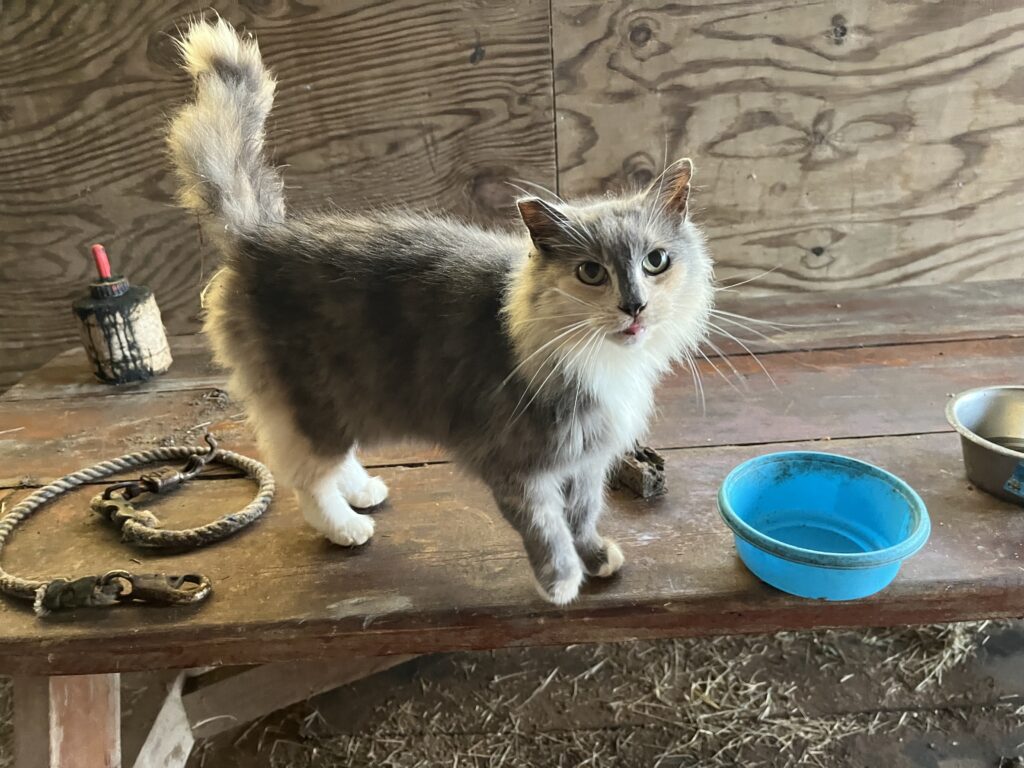
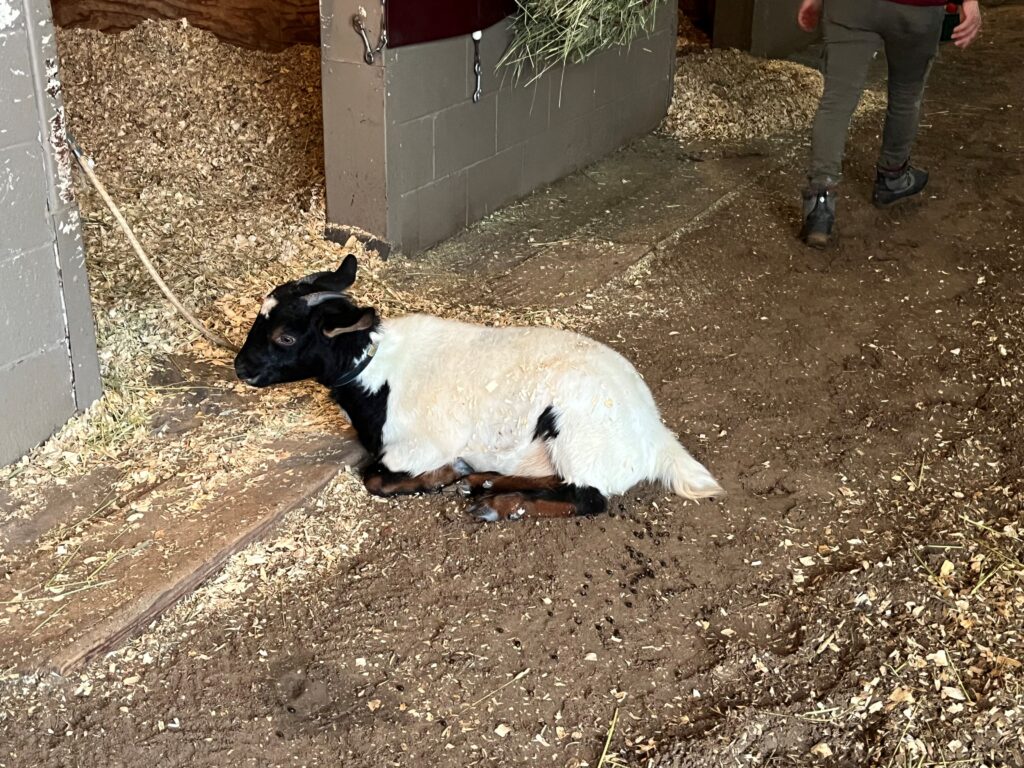
Good health checkups from the vet
It’s essential to get your horse checked by a vet if it shows chronic signs of discomfort. It is especially important if you have a high-performance horse, such as a racing thoroughbred or a rodeo quarter horse.
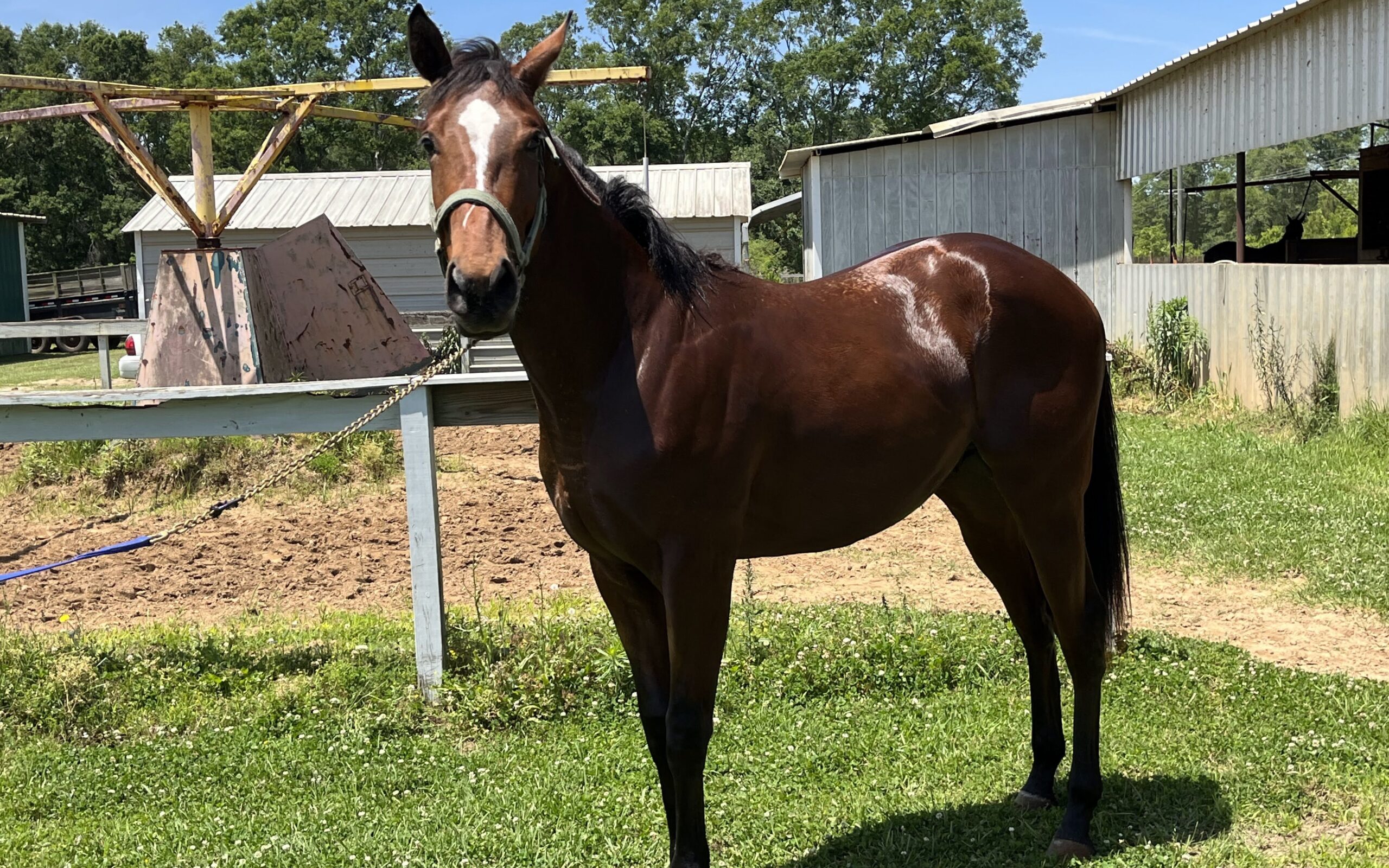
How to calm your horse on the ground
If you are walking a nervous horse, it is important to ensure you are ready for them to make sudden and unpredictable movements. Let the horse smell you or lightly touch them to introduce yourself to them before walking them.
Keeping calm while dealing with a nervous horse is also very important. If you bring in nervous energy, you could make a bad decision and hurt yourself or let the horse hurt itself.
One common thing you will notice from experienced horse experts or cowboys in the South is that they usually stay calm in tough situations. For example, my friend led a young stallion out of its stall when it suddenly reared up and tried to paw him.
He calmly moved to the side and continued working with the horse like nothing was out of the ordinary. Staying calm is crucial, and it’s important to control the horse to reduce the risk of injury.
If you know your horse is nervous, work with him in a controlled environment like a round pen, arena, or paddock. Working an anxious horse on a lunge line in a round pen is a great way to calm a horse.
The small enclosure will increase his confidence and comfort level; if he breaks away from you, he has nowhere to run. If you don’t have a round pen, you can still lunge your horse in an open pasture; however, if he gets loose, it will be challenging to catch him.
How to calm a horse while riding.
Every situation is different, but knowing what about the horse you intend to ride is important before getting on its back. Observe its movements and make a decision on whether you think the horse is too high-strung for you.
However, even though you start out on a calm horse, sometimes situations arise that make them nervous. Recently we were riding young horses on a back road, and a pack of vicious dogs came charging us from the woods.
Although I expected a bronc ride, I sat calmly and started moving slowly toward our intended destination. He handled the situation like a pro, and the dogs eventually disappeared. You want to move your horse away from the source of the stress.
Whether it’s a snake or a coyote, you should notice the threat and distance yourself from it. Even if you are not scared of it, there’s a good chance your horses may be, and that’s not safe for you.
Talking to your horse with a soothing tone may even calm your horse down. This especially works if you have already built a relationship with your horse, and it can recognize your voice. Horses are often trained to respond to sounds.
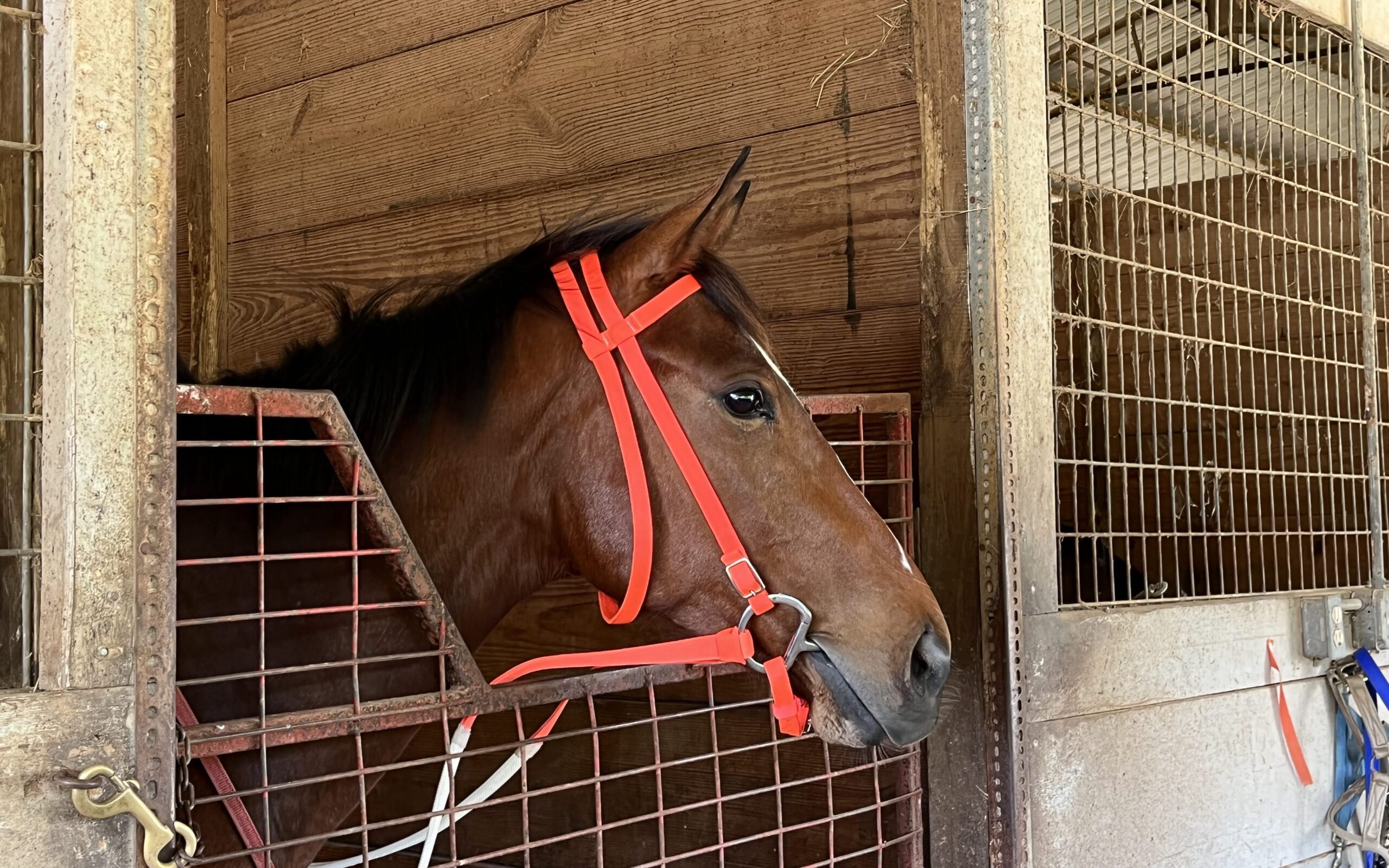
How to calm a horse down in a stall.
Some horse trainers have their own special ways of training a nervous horse in a stall, so today, I will not be doing a tutorial, but I will be talking about how you should approach the horse in the stall and what you should avoid.
Some horses have had troubled pasts, and some are simply not trained well; either way, you may be in a situation where you are facing a nervous horse in a stall. You should always approach a nervous horse slowly and cautiously.
You will never catch a mature horse by charging them quickly; they are too strong and fast. Talking to them with a soothing voice may calm them down. Loud noises and screaming will just scare them, making them even more nervous and dangerous.
Remaining calm is important when dealing with a timid horse. I know it may be difficult, but if you truly want to make progress and have the tools and knowledge to train a horse, you should have the confidence to keep yourself and the horse safe.
If you bring more nervous energy into the situation, it will only make things worse. I noticed when our farrier meets one of our horses for the first time, he stands still and lets the horse smell him for a while, then he stands next to the horse and talks to us.
After watching him a few times, I asked him about his routine, and he explained that if a horse gets a good smell of you, he’ll never forget you, and he wants the horse to associate his scent with someone calm and not in a rush, this makes his job easier in the long run.
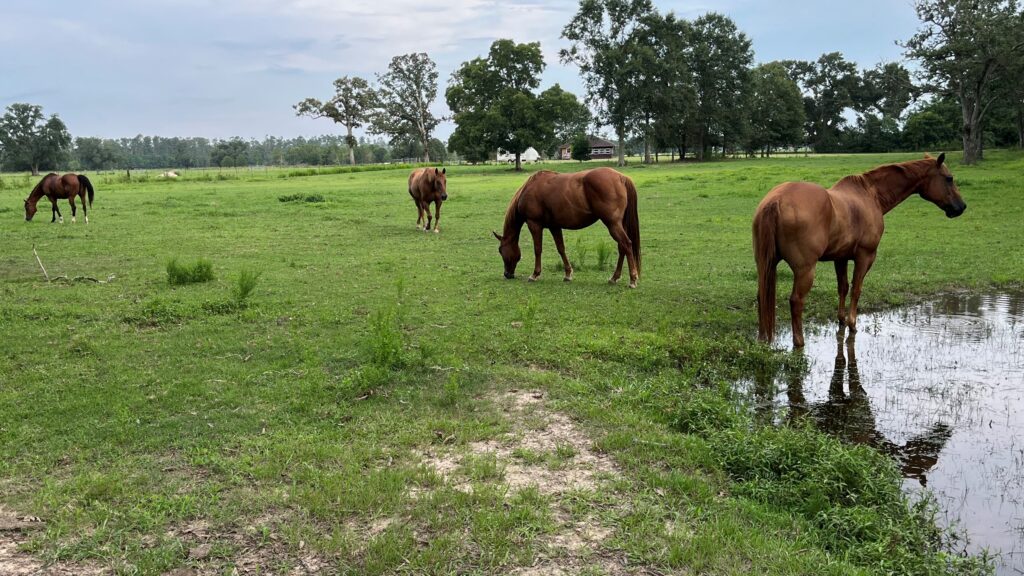
Do calming supplements work for horses?
The answer to this question seems to unanimously be: yes. We’ve used them on a few horses, and they seemed to take the edge off without making them drowsy.
The scientific research isn’t clear on commercially sold supplements, but some ingredients show promise: Alpha-casozepine and Magnesium. Alpha-casozepine seems to be the overall choice as an oral supplement, and magnesium is more effective when given intravenously.
One frequently used supplement is Formula 707 Calming Equine Supplement, which includes magnesium. In addition, horse owners often use Dorm Gel and Ace (Acepromazine) to calm anxious horses.
Ace is typically given to nervous horses before riders mount, which works well. However, it’s not a long-term solution for fixing anxious horses.
Does your horse need calming supplements?
I have friends that do not believe in giving any horse a calming supplement, no matter how hard they are to handle. They use natural horsemanship techniques to calm and train anxious horses.
However, calming supplements are an option for some people, especially if your horse displays behavior that makes it impossible to handle the horse without it. Every situation is different, and I am not a vet, so it is on you if you think your horse needs the supplements.
It is important to know your horse and to know how odd it’s acting. When buying a horse, you’re unfamiliar with; it is important to get information from the seller on its normal behavior.
A livestock auction near us sells all types of farm animals, including horses. People often leave the auction with a calm horse only to find out later it was sedated.
I recommend trying a horse at your house for a couple of days before making a decision to buy it. The more information you have on the horse, the better.
Don’t use calming supplements as your first choice. Always use them as a last resort because, in the end, you want your horse to be calm without needing supplements. Working with your horse to address the source of anxiety its anxiety is the best solution.
Conclusion
Horses are prey animals; as such, they have several defense mechanisms to help them feel safe. When we work with horses, it’s important to understand these defenses and how to counter them. Remember, it’s important to remain consistent with your approach and be patient.
Keep working with your horse until it feels comfortable and confident. If you’re having trouble calming your horse alone, don’t hesitate to contact a professional for help. With a little patience and practice, you should be able to get your anxious horse back on track in no time.
Below is a YouTube video showing how to calm a horse.

About the Author: Miles Henry
Lifelong Horseman | Racehorse Owner | Published Author
Miles Henry brings over 25 years of hands-on experience training and owning Thoroughbred racehorses. Raised with Quarter Horses and Appaloosas, he’s spent a lifetime learning from horses—on the track, in the barn, and in the field. Today, he runs a small but successful racing stable in Louisiana and shares real-world insights on HorseRacingSense.com, helping horse owners, fans, and bettors navigate the sport with confidence.
📚 Books: View Miles’s books on Amazon »
🎧 Podcast Guest: Animal Tales Ep. 32 |
YouTube Interview
📩 Newsletter: Sign up for racing tips and horse care advice »
🔗 Follow Miles:
Twitter |
Facebook |
YouTube


